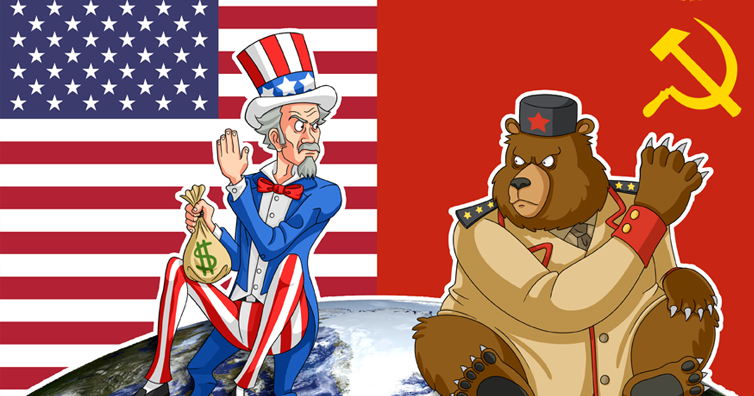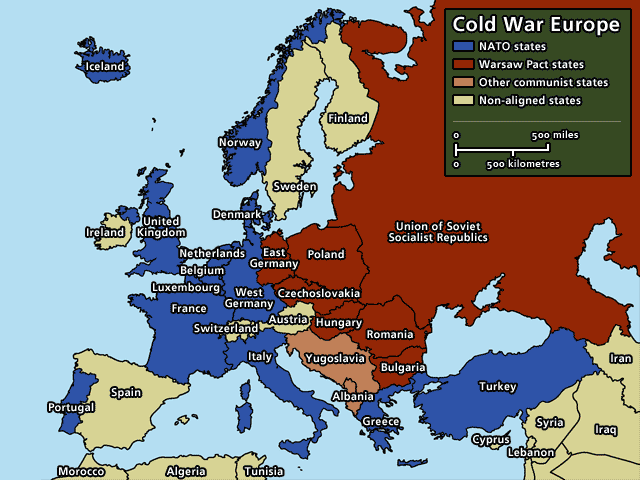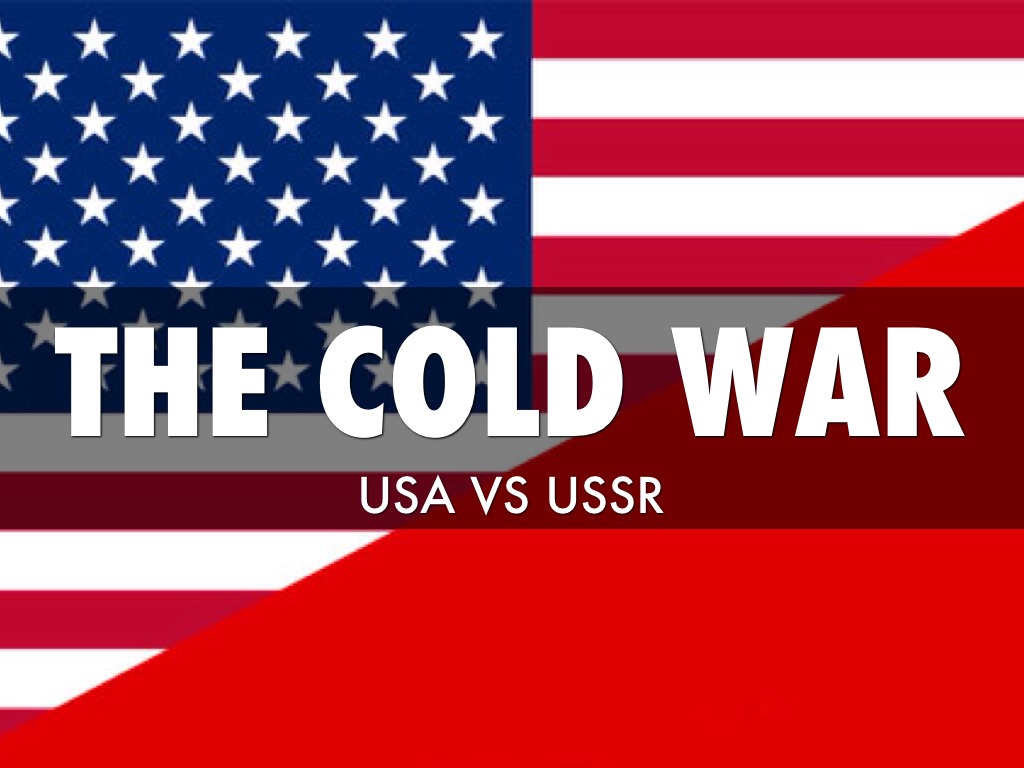


Each saw a different reality The Soviets wanted troops in Eastern Europe to block an attack from the West the West saw them as a prelude to an attack on the West. The Cold War emerged as the Soviet Union turned Eastern Europe - the invasion route to Russia for centuries - into a military and political buffer between it and the West. Between the two sat the poor little English donkey, who was the only one who knew the right way home." "There I sat with the great Russian bear on one side of me with paws outstretched, and, on the other side, the great American buffalo. The Cold War Defined: Churchill's Perspective This "thaw" led to the Geneva Summit of 1955. Ironically, it was the new Soviet leadership less well known to the West that Churchill saw as an opportunity for warmer relations. Stalin died in 1953 during Churchill's second premiership, leaving Churchill as the sole survivor of the original three Allied leaders. Churchill's General Election loss and the Soviets' postwar actions in Eastern Europe further stressed the ties and effectively dismantled the relationship between Churchill and Stalin. The death of Roosevelt in April 1945 helped to extenuate existing fissures in the 'grand alliance'. Churchill was fond of Stalin and enjoyed their interplay. Nevertheless, unlike his relationship with Hitler, characterized by mutual loathing, Churchill's relationship with Stalin had the marks of respect. And, as a life-long anti-Bolshevik, Churchill harbored few illusions about Soviet post-war intentions. Each admired the courage with which the other faced the challenge. Both men knew what it was like to have their back against the wall with Hitler in front of them. The wartime alliance formed a peculiar bond between Churchill and Stalin.

"I would not have believed it possible that in a year, the Soviets would have been able to do themselves so much harm, and chill so many friendships in the English-speaking world." But, throughout the late 1940s and during his second term as Prime Minister, Churchill continued to grapple with Cold War issues. But he did see it coming, sounded its early warning, and defined the central problems that would occupy the leaders that followed him.Ĭhurchill's speech at Fulton was the first widely recognized clarion call. Winston Churchill did not start the Cold War and he did not finish it. My faith is that in God's mercy we shall choose aright."įrom the end of World War II in 1945 to the collapse of the Soviet Union in 1991, former allies, no adversaries, probed and challenged each other, fought "proxy wars" in remote places, and attempted to best the other without provoking a nuclear exchange. "We and all nations, stand at this hour in human history, before the portals of supreme catastrophe and of measureless reward. Winston Churchill and the Cold War Churchill and the Cold War


 0 kommentar(er)
0 kommentar(er)
